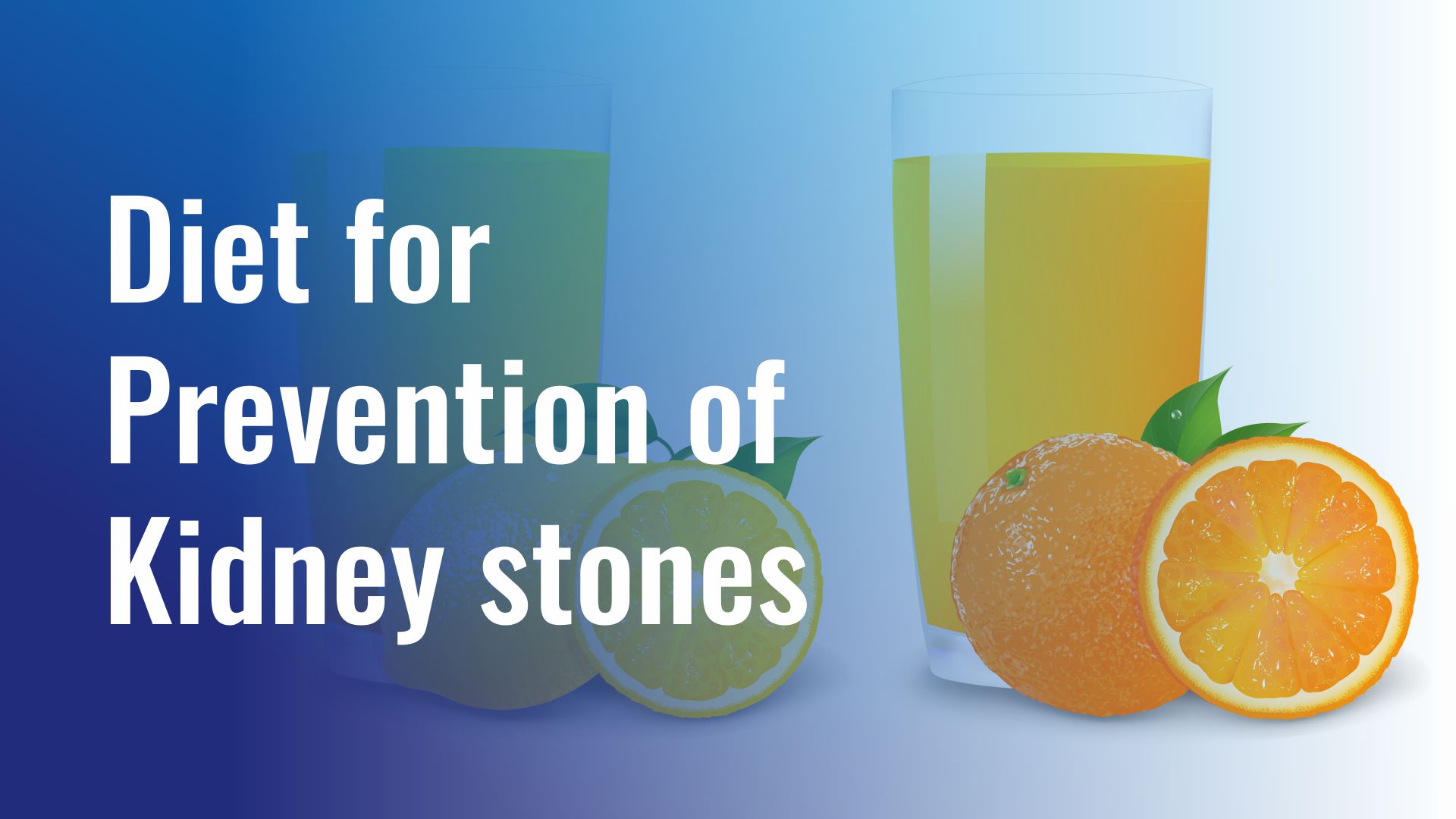Good hydration & Moderation of Diet are the two key factors for staying away from kidney stones.
Good Hydration is “The Foundation of Kidney Stone Prevention”
Moderation of Diet is a “Balanced Approach to Prevent Kidney Stones”
Exercise Regularly
Regular physical activity can help maintain a healthy weight and reduce the risk of stones.
Good Hydration
“Dilute Urine to Prevent Stone Formation”. The primary role of the kidneys is to filter waste products from the blood and excrete them in the urine. When we are well-hydrated, our urine becomes more diluted, meaning that the concentration of stone-forming substances like calcium, oxalate, and uric acid is lower. This reduces the likelihood that these substances will crystallize and form stones.
Adequate hydration helps keep the urine flowing, which is essential for flushing out small crystals before they have a chance to grow into larger stones.
Moderation of Diet
- Avoid high protein diet.
- Manage oxalate diet.
- Incorporate citrate & magnesium in the diet.
- Limit salt.
Avoiding a High-Protein Diet
A diet rich in animal protein can elevate the risk of both calcium oxalate and uric acid stones. This is because animal proteins increase the excretion of calcium, oxalate, and uric acid in the urine. Therefore, it’s crucial to moderate the consumption of red meat, poultry, fish, and eggs.
Managing Oxalate-Rich Foods
Oxalate is a naturally occurring compound found in many foods, including spinach, beets, nuts, and chocolate. When consumed in excess, oxalate can bind with calcium in the urine to form calcium oxalate stones, the most common type of kidney stone. While it’s not necessary to eliminate oxalate-rich foods entirely, moderation is key.
Incorporating Citrate and Magnesium
Citrate, found in citrus fruits like lemons and oranges, helps prevent stones by binding with calcium in the urine and inhibiting the formation of calcium oxalate stones. Magnesium, found in foods like leafy greens, and whole grains, also plays a protective role by preventing oxalate absorption. Including these foods in our diet in moderate amounts can support kidney health and reduce the likelihood of stones.
Limiting Sodium
High sodium intake can increase the amount of calcium in our urine, which can lead to stone formation. Processed foods, salty snacks, and fast foods are common sources of excessive sodium and should be consumed sparingly.
FAQ
1. Why is good hydration important for preventing kidney stones?
- Good hydration helps dilute urine, reducing the concentration of stone-forming substances like calcium, oxalate, and uric acid. This lowers the risk of these substances crystallizing and forming kidney stones.
2. How does drinking enough water help in flushing out kidney stones?
- Adequate hydration ensures that urine flows well, which is essential for flushing out small crystals before they can grow into larger stones.
3. Why should I avoid a high-protein diet to prevent kidney stones?
- A diet high in animal protein increases the excretion of calcium, oxalate, and uric acid in the urine, which can elevate the risk of both calcium oxalate and uric acid stones.
4. What are oxalate-rich foods, and why should I manage their intake?
- Oxalate-rich foods, like spinach, beets, nuts, and chocolate, can bind with calcium in the urine to form calcium oxalate stones. Moderating the intake of these foods helps reduce the risk of stone formation.
5. How do citrate and magnesium help in preventing kidney stones?
- Citrate binds with calcium in the urine, preventing the formation of calcium oxalate stones, while magnesium prevents oxalate absorption. Including foods rich in citrate and magnesium in the diet supports kidney health.
6. Why is it important to limit sodium intake to prevent kidney stones?
- High sodium intake increases calcium levels in the urine, which can lead to stone formation. Reducing the intake of processed foods, salty snacks, and fast foods helps in managing sodium levels.
7. Can regular exercise help in reducing the risk of kidney stones?
- Yes, regular physical activity helps maintain a healthy weight, which in turn reduces the risk of developing kidney stones.
8. Is it necessary to eliminate oxalate-rich foods from my diet entirely?
- No, it’s not necessary to eliminate oxalate-rich foods entirely. Moderation is key to managing their intake and reducing the risk of kidney stone formation.


Leave a Reply